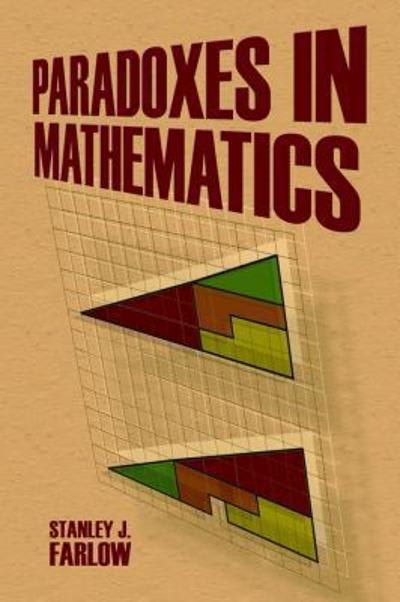Answered step by step
Verified Expert Solution
Question
1 Approved Answer
How would I answer these questions? 1. 5-bits, A = 2 consec O's, B = 1st is 0, p(A) = ? A string of O's
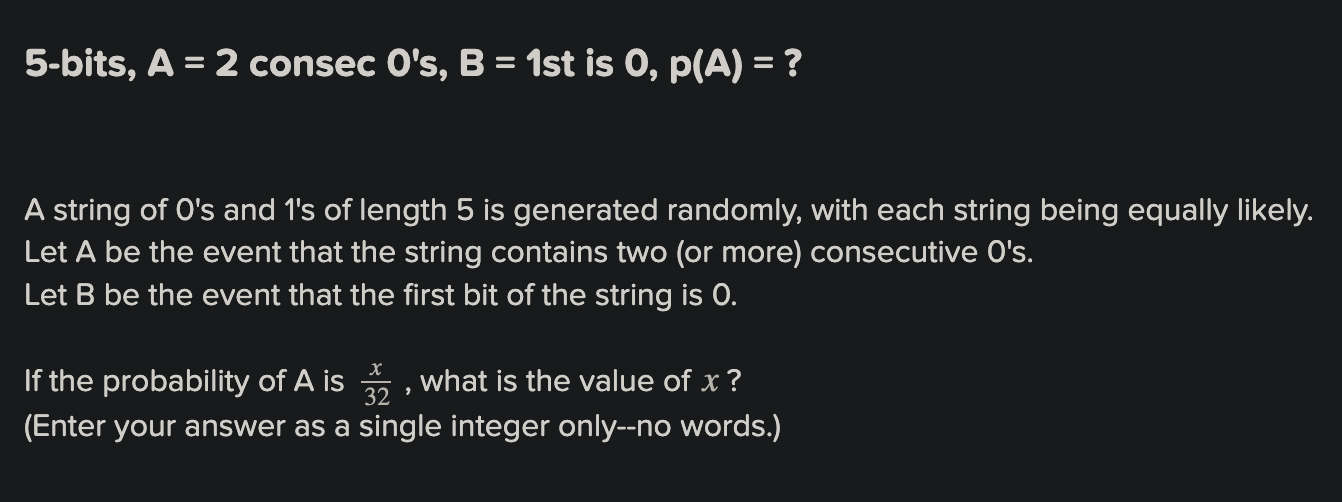
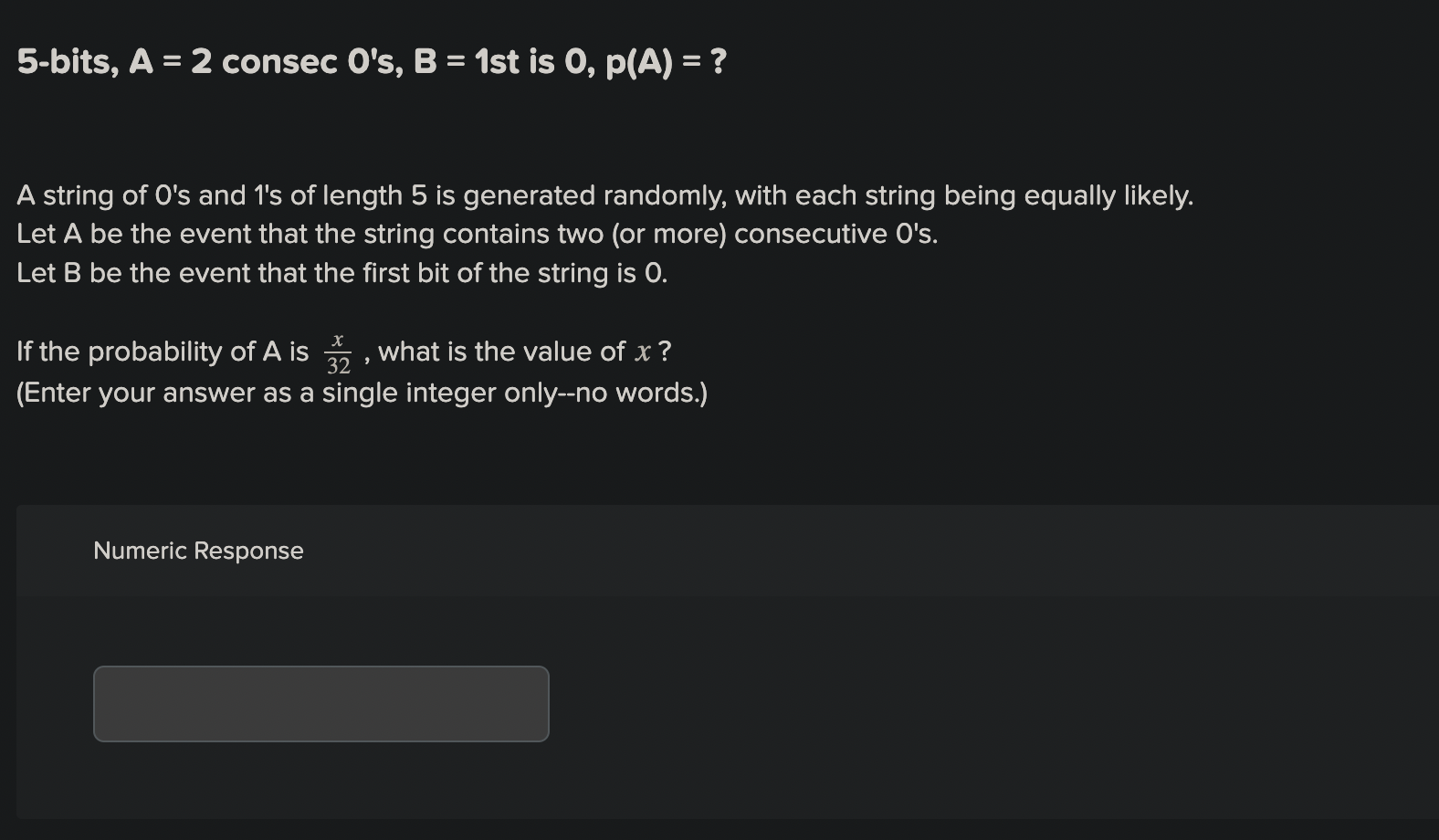

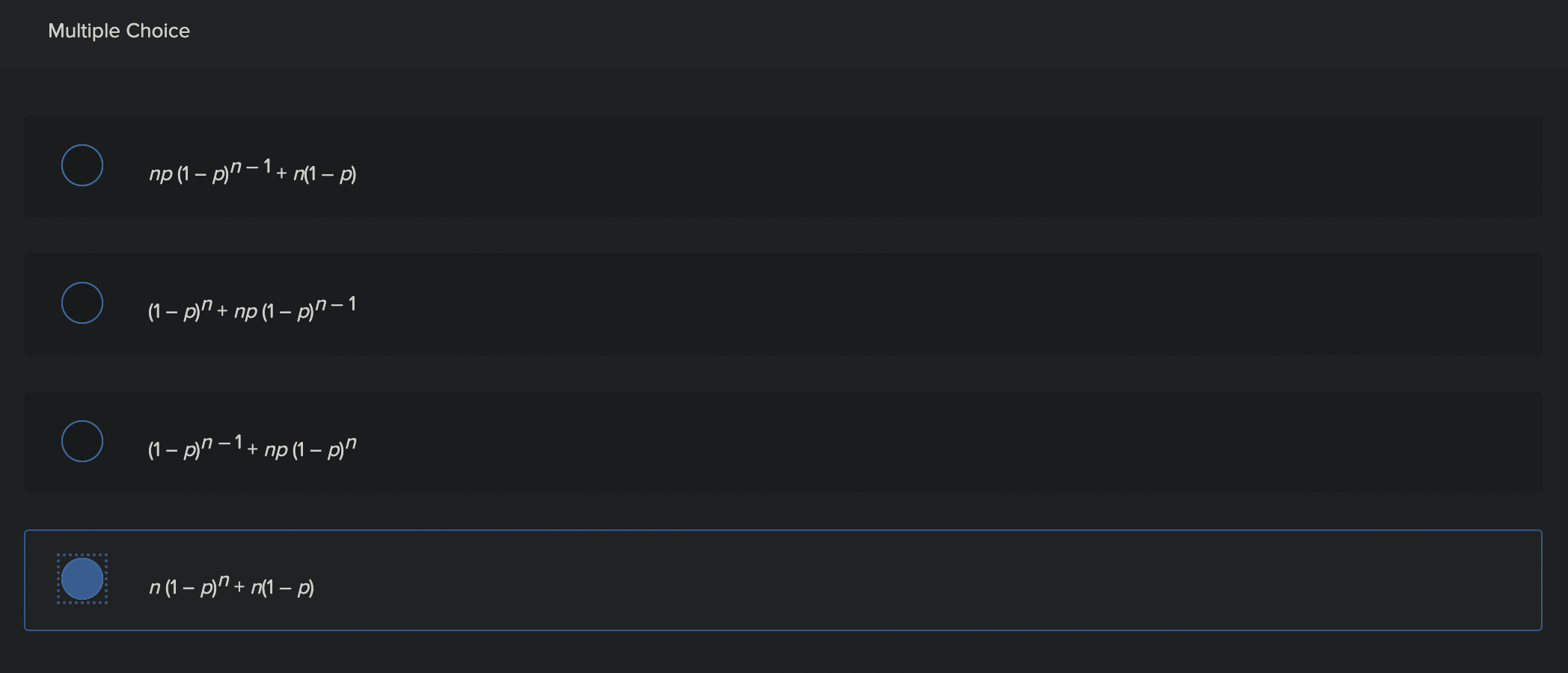
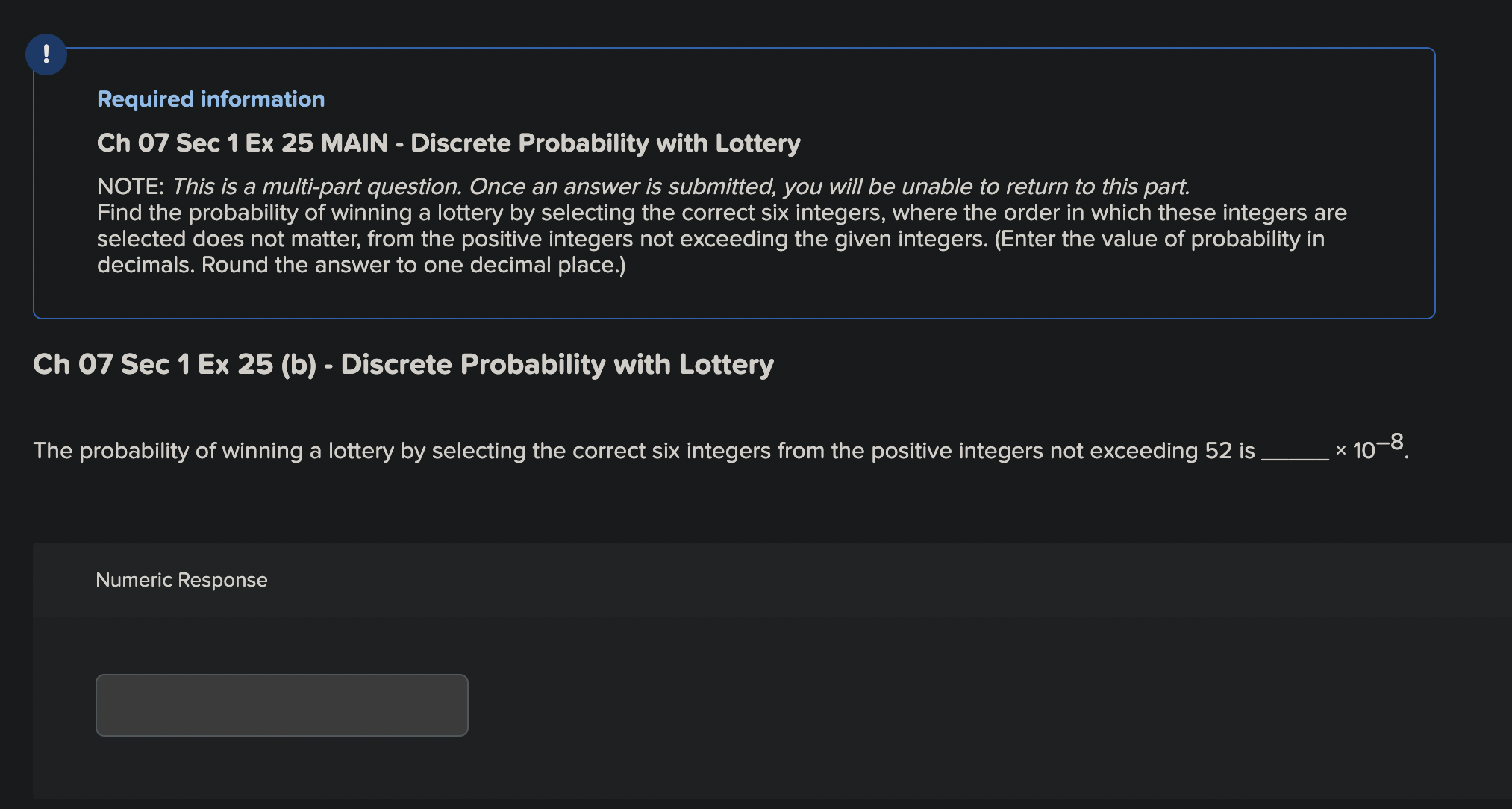
How would I answer these questions?
1.
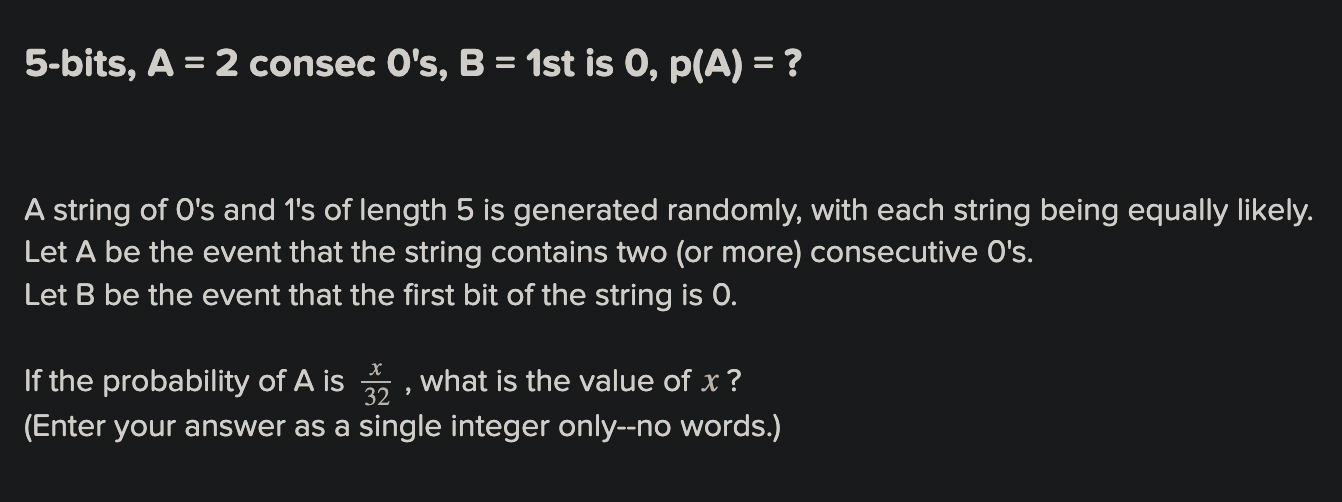
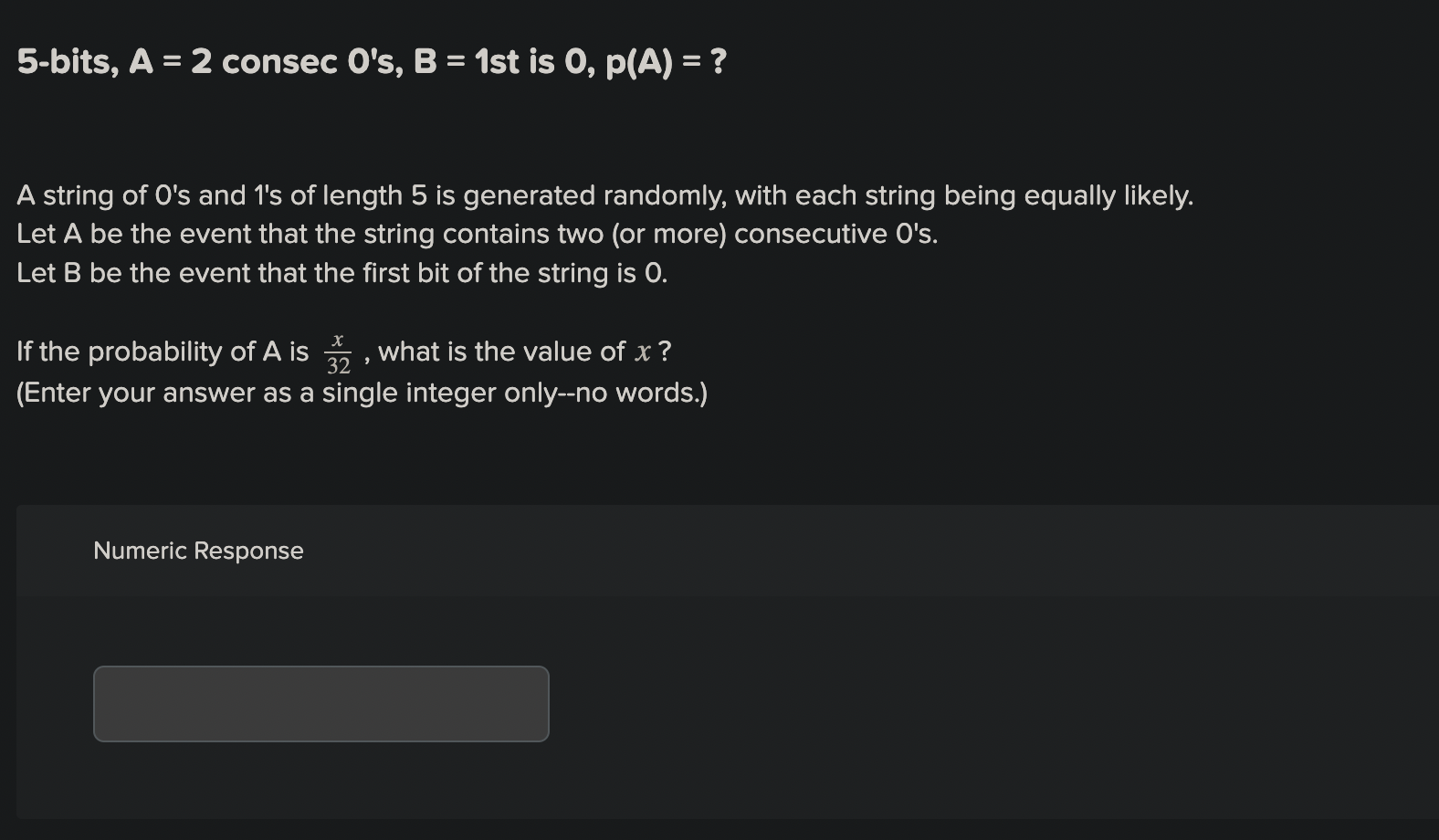

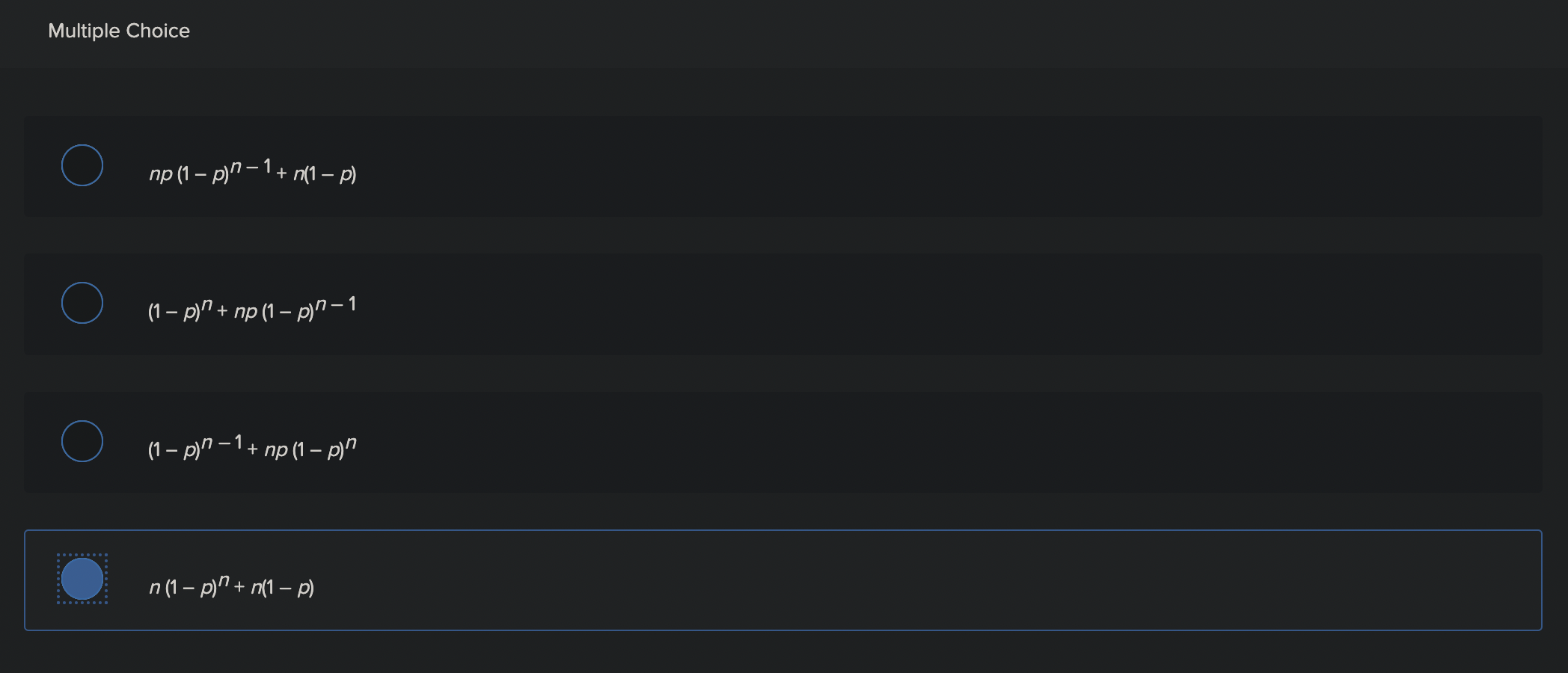
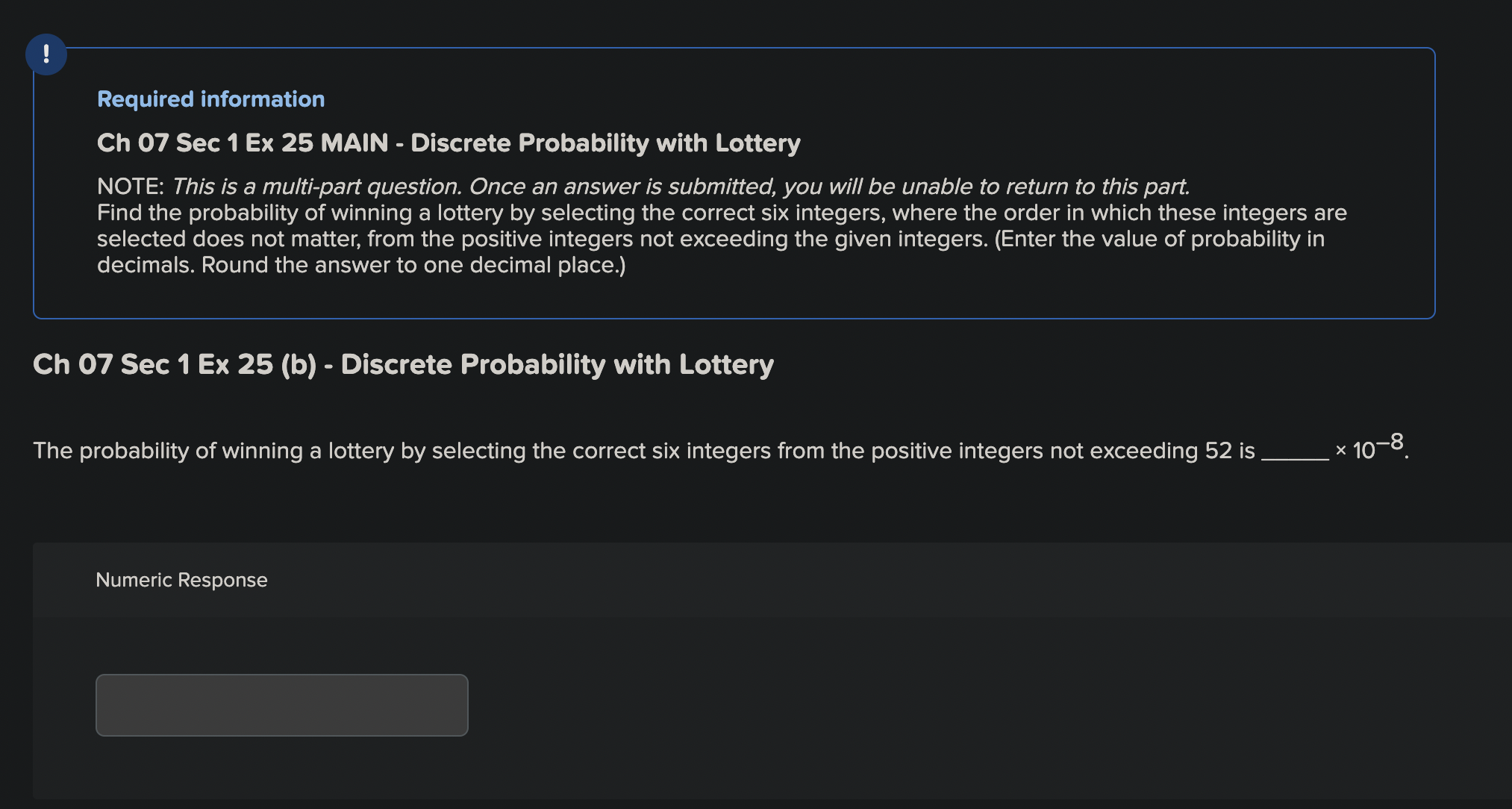
Step by Step Solution
There are 3 Steps involved in it
Step: 1

Get Instant Access to Expert-Tailored Solutions
See step-by-step solutions with expert insights and AI powered tools for academic success
Step: 2

Step: 3

Ace Your Homework with AI
Get the answers you need in no time with our AI-driven, step-by-step assistance
Get Started


